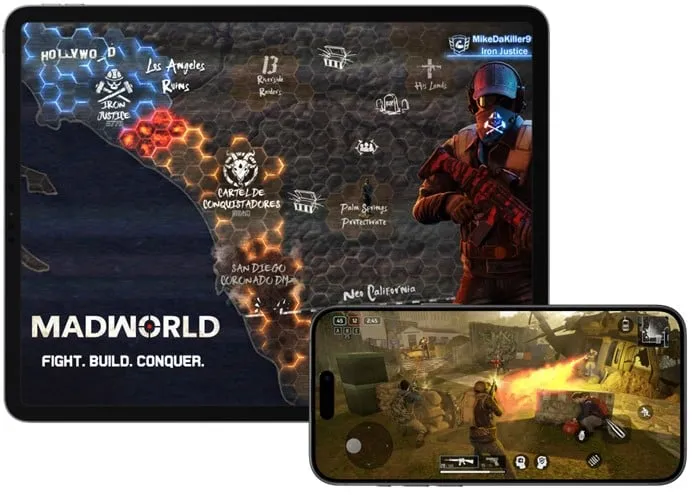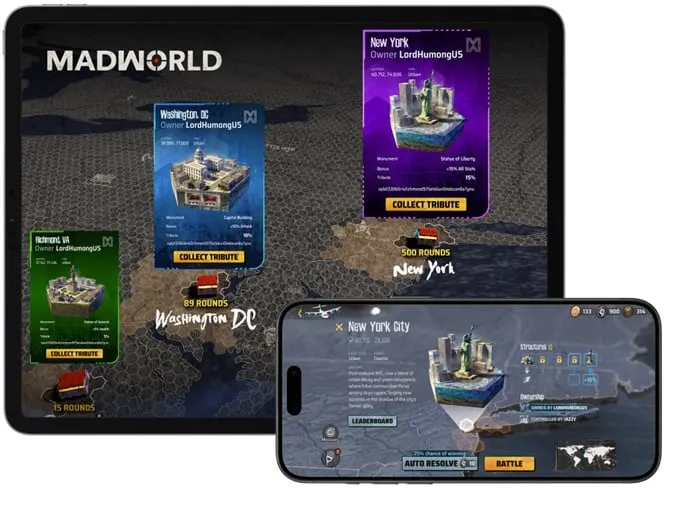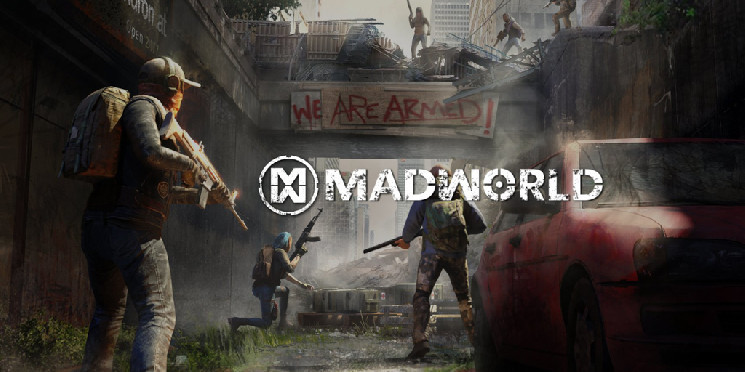Carbonated Inc, founded in 2015 by video game industry veterans from firms like PlayStation and Electronic Arts, revealed exclusively to Decrypt’s GG that it has raised a $13 million Series A round led by Com2uS, the South Korean gaming giant behind the XPLA blockchain network that MadWorld uses for its on-chain elements.
Additional backers in the round include Andreessen Horowitz, Bitkraft Ventures, Cypher Capital, Blocore, Goal Ventures, and WAGMI Ventures, the company said. The studio previously raised $8.5 million in 2020 with Andreessen and Bitkraft both attached then, as well.
MadWorld, which will launch to the public sometime in 2024, pairs competitive shooting action from a third-person perspective with territory control gameplay based around $NFT land assets. The game takes place in a post-apocalyptic version of Earth six months after an ominous event called “The Collapse,” setting the stage for intense battles for survival.

Players can own, upgrade, and trade tokenized versions of real-world locations on a hex grid of over 250,000 land plots. Each chunk of land in MadWorld has particular resources available and other potential benefits, and if in-game clans want to battle on those plots and take advantage of the unique perks, they’ll have to pay “tribute” to the $NFT land owner.
Tribute is paid in “Rounds,” an in-game currency that will eventually be turned into an on-chain cryptocurrency, fueling a tokenized economy.
“To maintain and increase tribute benefits, landowners can sink Rounds into their land,” Carbonated CEO Travis Boatman explained to Decrypt’s GG. “Rounds can be converted to our future on-chain token, which is pending early access feedback from players.”
Boatman is a mobile gaming veteran dating back to executive roles at Zynga and Electronic Arts, where he helped oversee the success of such games as Zynga Poker, Words With Friends, and The Simpsons: Tapped Out. He thinks mobile is an ideal proving ground for crypto tech, provided the games have broad appeal.

“We think mobile is where the breakout will happen for Web3,” he told Decrypt’s GG.
“Mobile gamers are super familiar with purchasing digital goods with digital currency. We believe it’s only one additional cognitive step to do this on-chain,” Boatman added. “While the usability still needs to be improved—and lots of great companies are working hard on this—it still all rests on great game experiences to drive it.”
In recent months, we’ve seen Google soften its stance towards Web3 games on the Android Play Store, while companies have launched $NFT experiences in the iOS App Store while still playing within the rules of Apple’s walled garden ecosystem.
Boatman said that regulations are ultimately a “good thing” for consumers to avoid the “hacky, exploitative practices” seen when free-to-play mobile games first hit the scene in the early App Store days. It’s up to game creators, then, to work within those guardrails.
“To create that ownership demand, games simply need to be so good that players will crawl over broken glass for them,” Boatman said. “That’s much harder to do—which is why we think we’re seeing fewer teams with deeper experience chasing this space.”
Edited by Ryan Ozawa.
 decrypt.co
decrypt.co
